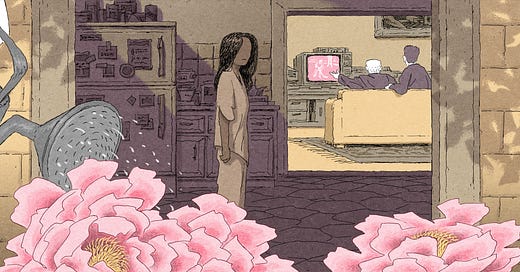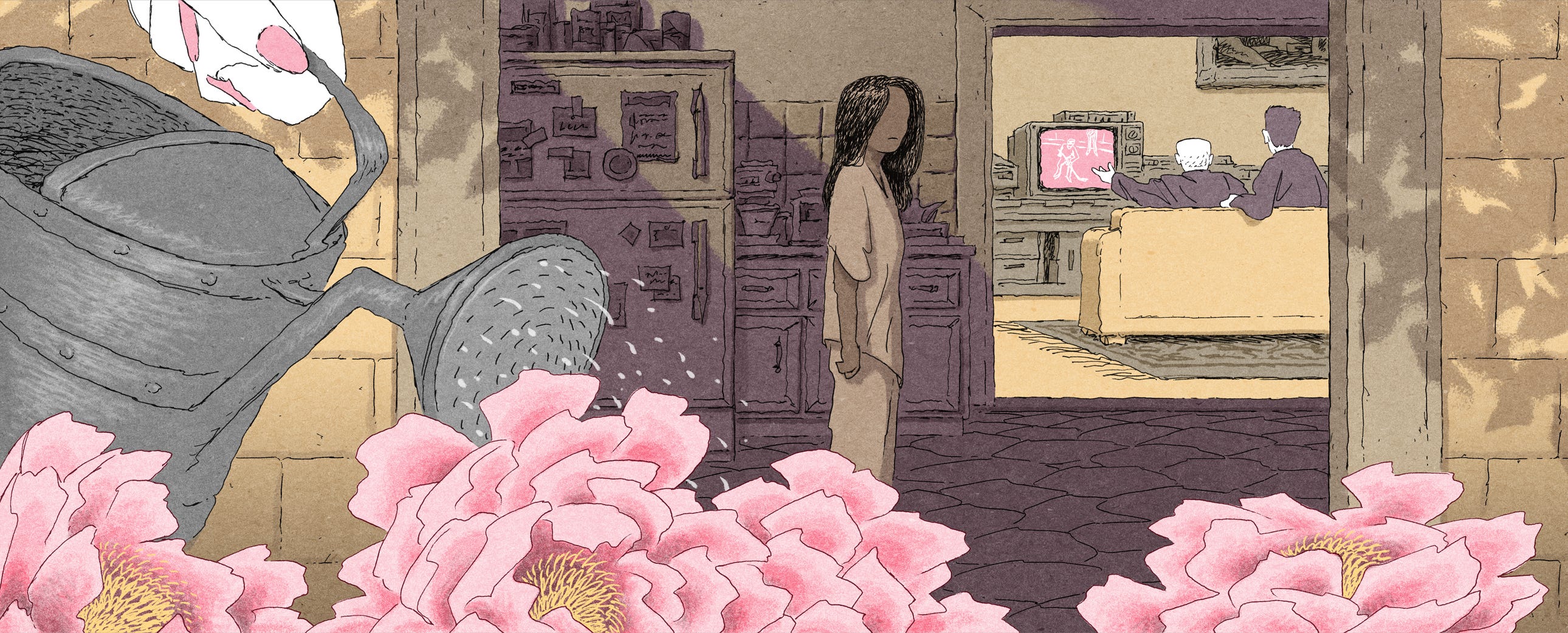Living with a Skinhead, While Living in My Brown Skin
As an Indonesian adoptee in Sweden, I was alarmed when my new stepbrother started dabbling in white supremacy. I didn’t realize how far it had gone until I was lying in a dark field, getting kicked in the chest with a steel-toed boot.
It was right before midnight when I arrived on our street. I kept my eyes on the pavement and sped up my steps, squeezing the keychain in my pocket until the jagged edge dug deep into my palm. I leaped up the three steps that led to our front door. The only light came from a soft-lit teardrop-shaped lamp through our hallway window. The last person home at night was supposed to turn it off. I was almost an hour earlier than when I usually got back on Saturday nights, although I was right on time for my curfew as a 15-year-old. Once inside, I quickly kicked off my muddy tennis shoes and placed them on the shoe rack. I didn’t have to look around to see whose shoes were missing. I already knew. I left the light on. Without removing my jacket, I hurried across the hallway into my room and closed the door behind me.
I stood frozen against the door, waiting to thaw. I locked it. Click. The sound disappeared in the dark. I was alone. I slid my right hand through the thick, coarse, jet-black hair on the back of my head. It was still there, the bulge where my head had hit the ground on a small tree stump earlier. The bump fit like a piece of a puzzle in my cupped hand. I traced my fingers lightly around the area, still hurting — just like it had been for some time now, even before tonight. Before there were steel-toed boots and skinheads. Before my stepbrother Tobias became one of them. I had already felt it all, I just didn’t know how to put words to it. I was Swedish. My skin was brown. Nothing made sense to me. (Editors’ note: This story includes references to racism and racist slurs in both English and Swedish.)
Keep reading with a 7-day free trial
Subscribe to Narratively to keep reading this post and get 7 days of free access to the full post archives.





